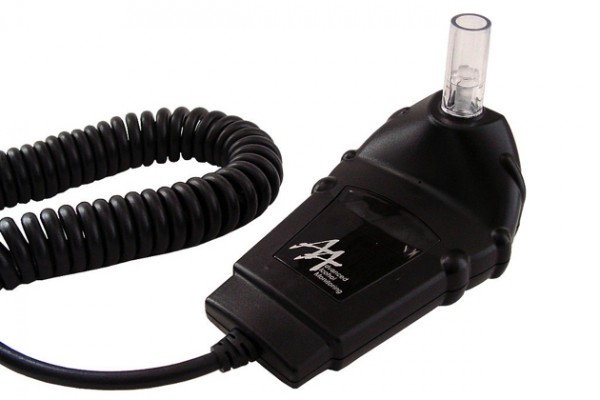What Is An Ignition Interlock Device

An ignition interlock device (IID) or a breath alcohol ignition interlock device (BAIID) is a device that is installed into a vehicles ignition system. These devices work in a similar fashion to a security chip built into the ignition key for most newer model cars. When the car is started, it detects the security chip, and allows the car to start. An IID works in a similar fashion, only instead of an security chip, it requires a breath sample from the driver in order to start the car. The breath sample works the same way a breathalyzer does, by measuring the ethanol content in the driver’s breath. If the BAC levels detected are too high, the car simply will not start.
Some people believe that they can use a passenger to start the car and then drive home, drunk or otherwise. The problem with this plan is that the IID will check back periodically, requiring another breath sample. Due to the placement of the IID, it makes the subsequent samples from a passenger very difficult to provide safely. If a sample is not provided, or the BAC of the sample is too high, then the device makes a record of the event, warns the driver and then begins an alarm (flashing lights, honking horn) until the ignition is turned off.
No. In most cars, if the engine turns off the driver loses both brakes and power steering which could create unsafe driving conditions. The vehicle simply creates a record of the event and then raises an alarm until the car is turned off and a passing sample is provided. Not only does this keep the device safe to use on the road, but is also an easy means of notifying the police that something is amiss.
More and more, states are requiring the use of an IID when a person is convicted of a DUI. In some countries, the device is mandatory for all first time offenders although the length of time it’s required to be installed can vary. In some states, such as California, the device is required for all DUI offenders that apply for a restricted driving license. In other states, such as New York, the IID is required for any vehicle you drive. To enforce this, the mandate is also noted on your license so the police will know if you’re supposed to have one installed in your car.
You do. The person convicted of a DUI is not only responsible for the installation costs, but also any maintenance required as well as monthly calibration fees. Whenever the device is calibrated, the log created by the device is also printed. In some instances the courts will require a regular review of these reports. Any infractions or violations accrued during these intervals can result with more fines, added penalties or lengthen the time the IID is required.
While an IID might seem like an irritation, it has proven to be an effective means of keeping repeat offenders off the road. In some cases, and IID installation can take the place of sentencing which can mean avoiding jail time and some other serious penalties.
+Andrew is one of the leading DUI and criminal defense attorneys in both the state of Maryland and the District of Columbia. He blogs about Maryland DUI law, has numerous videos on the subject and has been asked to appear on national television to offer his legal opinion on high-profile criminal cases.
